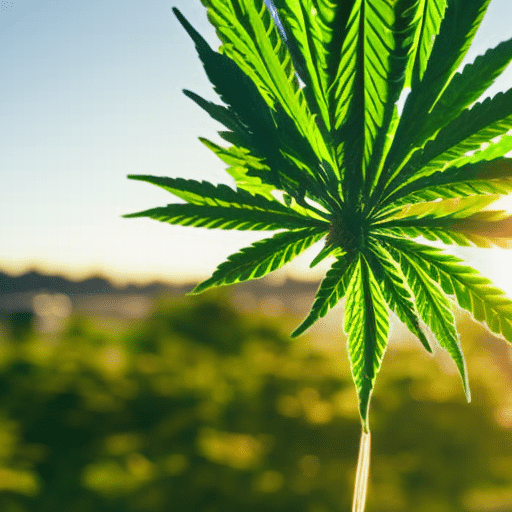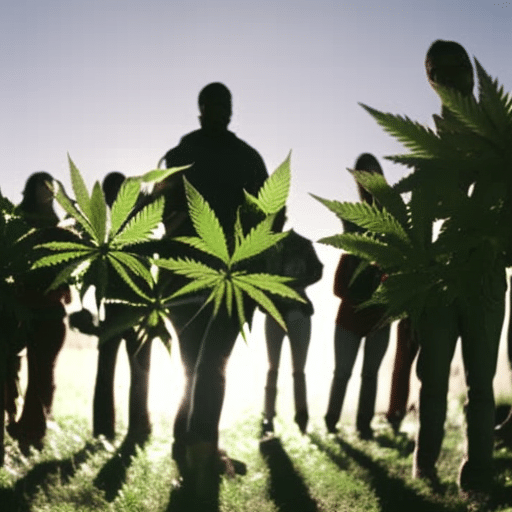As the dawn of legalized recreational cannabis breaks in Delaware, you can almost sense the change in the atmosphere. This isn’t merely about freely lighting up a joint; it’s about a shift in societal perception, a potential surge in state revenue, and a novel approach to health and wellness.
Table of Contents
Can a state renowned for its conservative values adjust to such an impactful change? That’s the question on everyone’s lips. As we delve into the journey towards legalization, the legislative obstacles surmounted, and the potential impact on Delaware’s economy and public health, you’ll find that the answer is more complex than it initially appears.
So, are we ready to plunge into this green revolution?
The Path to Legalization in Delaware

Let’s explore Delaware’s path towards legalizing recreational cannabis—a complex yet intriguing process that has been gradually unfolding over recent years. This policy transformation has been slow but steady, punctuated by vigorous debates and thoughtful consideration of societal implications.
You’ve likely observed how Delaware’s stance has evolved from strict prohibition to a more accepting perspective. However, this change didn’t occur overnight—it’s been influenced by various factors including public opinion shifts, research advancements, and experiences from other states.
The social ramifications of this policy evolution are extensive. Consider how legalization could impact criminal justice—legalizing cannabis could free up police resources, alleviate prison overcrowding and even rectify past injustices through expungement initiatives.
Conversely, it’s crucial to consider potential public health risks. Concerns around increased substance abuse and safety issues, particularly regarding driving under the influence, are valid.
As a member of your community, understanding these complexities is essential. The journey isn’t over yet, and your informed, proactive involvement is key to shaping a future where Delaware’s cannabis policy benefits all.
Navigating Legislative Challenges

Navigating the labyrinth of legislative challenges has been an integral part of Delaware’s path towards legalizing recreational cannabis. You’ve witnessed how policy evolution has been shaped by relentless advocacy, shifts in public opinion, and regulatory hurdles.
Here’s a brief overview of what it took to overcome these challenges:
- Persistent Advocacy: Continuous lobbying by pro-cannabis groups played a pivotal role in shifting public and political opinion.
- Shifting Public Opinion: As more Delawareans began supporting legalization, their voices significantly influenced policy evolution.
- Regulatory Challenges: Drafting clear and enforceable regulations was a considerable challenge. It required careful balancing between public safety concerns and individual freedoms.
- Political Negotiation: Navigating partisan divides proved challenging. Securing the necessary votes for passage required extensive negotiation and compromise.
Overcoming these challenges was no small task. However, it was crucial in establishing a framework that serves not just the cannabis industry but also the broader community. Understanding these hurdles helps appreciate the complexity of the process and prepares you to contribute to future policy discussions.
The Economic Impact of Legal Cannabis

Turning our attention to the economic landscape, it’s clear that legalizing recreational cannabis could significantly bolster Delaware’s economy. The most immediate impact will likely be through tax revenue. Like alcohol and tobacco, cannabis can be heavily taxed, generating substantial income for the state. This revenue can fund public services, infrastructure improvements, and other initiatives that benefit you and your community.
Job creation is another significant economic advantage. The cannabis industry isn’t just about growers and dispensaries—it encompasses transport, security, marketing, retail sectors and more—offering a broad range of job opportunities for Delawareans at all levels.
However, it’s important to maintain an objective perspective. While economic benefits are compelling, they must be weighed against potential societal costs such as public health and safety concerns. It’s crucial to ensure that generated revenue is responsibly used to mitigate any negative impacts.
Therefore, while legal cannabis’ economic impact is undeniably positive—it represents only one part of a complex equation. As with any major policy shift, careful planning and thoughtful implementation are key to maximizing benefits and minimizing drawbacks.
Health Implications in Delaware

Exploring the health implications of legalizing recreational cannabis in Delaware reveals a nuanced picture with both potential benefits and risks to consider. As we navigate this new landscape, understanding the potential effects on community health is crucial.
- Cannabis Consumption: Legalization could lead to increased consumption. While this might result in more cases of misuse or addiction, it could also promote safer use through regulation and education around responsible consumption.
- Medical Advancements: As stigma around cannabis decreases, opportunities for medical research and advancements could increase—potentially leading to new treatments for conditions like chronic pain, epilepsy, and PTSD.
- Mental Health Risks: Some studies suggest a link between heavy cannabis use and mental health disorders. It’s important to consider the potential for increased mental health risks with wider accessibility.
- Public Health Infrastructure: Legalization will require robust public health infrastructure to monitor trends, educate the public about safe usage practices, and respond promptly to any negative health impacts.
In your commitment to serve others effectively, understanding the potential health implications of legalizing recreational cannabis is a crucial step. This isn’t a simple issue—it requires careful consideration and a commitment to harm reduction, education, and public health.
Cultural Shifts and Public Perception

Beyond direct health implications, it’s vital to consider how legalizing recreational cannabis might also instigate significant cultural shifts and alter public perception in Delaware. One such shift is the potential dissolution of stigma. The stereotype of the lazy, aimless ‘stoner’ may gradually fade as recreational use becomes legal and more people openly share their responsible use of cannabis.
The transition towards societal acceptance isn’t instantaneous. While some welcome this change, others might resist it due to longstanding beliefs or fears about cannabis. Fostering open, respectful dialogues can help bridge these gaps.
Moreover, the legal status of cannabis can shape public perception beyond just recreational use—it’s about understanding the medicinal benefits too. As you engage in these discussions remember that your role isn’t to convince but rather educate and foster understanding.
As Delaware stands on the brink of this change, it’s worth noting that societal acceptance and stigma dissolution are ongoing processes—it’s a journey rather than an end point. Embrace it—you’ll contribute significantly to evolving a more accepting society.
Conclusion
As you stand amidst Delaware’s bustling streets, you can feel the change in the air. The green tide of cannabis legalization has finally arrived, bringing economic growth and stirring a profound cultural shift. Yet, the journey isn’t over. With health implications still under scrutiny, careful navigation is required on the road ahead. But for now, Delaware, it’s time to bask in the dawn of a new green era.
As we navigate this new landscape together, I invite you to visit us at Cannabis Docs of Delaware. We’re here to answer any questions and guide you through this new green era. We’re all about education and open dialogue—we’re always ready to chat. So whether you’re curious or have questions or just want to learn more about potential benefits and implications of cannabis use—give us a call or stop by.
We look forward to meeting you and sharing in the excitement of this historic moment.

